 Episode 3 kicks off with Aske being invited back to court for what is shaping up to be the Brady Bunch Christmas…. except Henry is seething inside and looking for an excuse to salt and boil Aske’s head. Henry promises Aske that all leaders will be pardoned and they will have their meeting with Parliament. To show his loyalty, Henry gives him a handsome gift of a robe. In reality, Henry gave him the gold chain off his neck and 1000 pounds.
Episode 3 kicks off with Aske being invited back to court for what is shaping up to be the Brady Bunch Christmas…. except Henry is seething inside and looking for an excuse to salt and boil Aske’s head. Henry promises Aske that all leaders will be pardoned and they will have their meeting with Parliament. To show his loyalty, Henry gives him a handsome gift of a robe. In reality, Henry gave him the gold chain off his neck and 1000 pounds.Little Lady Elizabeth is looking as cute as a button and reciting French to the delight of the court. She was back at court for the celebrations.
 Holbein is busy painting the beautiful and very nude Lady Missledon. Minus the jealous fiancé bursting in, this scene is pulled straight from the history books. According to legend, Holbein got into a fight with an anonymous English earl and threw him down the stairs. The injured earl complained to Henry about his injustice, but instead of punishing Holbein, Henry admonished the whining courtier by reminding him, “I tell you, earl, that if it pleased me to make seven dukes of seven peasants, I could do so, but I could never make of seven earls Hans Holbein or any as eminent as he.”(1) (The Tudors uses a very similar line.)
Holbein is busy painting the beautiful and very nude Lady Missledon. Minus the jealous fiancé bursting in, this scene is pulled straight from the history books. According to legend, Holbein got into a fight with an anonymous English earl and threw him down the stairs. The injured earl complained to Henry about his injustice, but instead of punishing Holbein, Henry admonished the whining courtier by reminding him, “I tell you, earl, that if it pleased me to make seven dukes of seven peasants, I could do so, but I could never make of seven earls Hans Holbein or any as eminent as he.”(1) (The Tudors uses a very similar line.) What I thought was particularly interesting about this scene was that they showed Holbein using what looked to be an early form of a camera obscura. A camera obscura is basically an optical device that projects an image onto paper so that the artist could accurately sketch or paint their subject. It is believed to be the first form of photographic images. Art Historians have always wondered if Holbein achieved such accuracy in his paintings by using a camera obscura.
What I thought was particularly interesting about this scene was that they showed Holbein using what looked to be an early form of a camera obscura. A camera obscura is basically an optical device that projects an image onto paper so that the artist could accurately sketch or paint their subject. It is believed to be the first form of photographic images. Art Historians have always wondered if Holbein achieved such accuracy in his paintings by using a camera obscura.Flash to Francis Bryan getting naughty with Edward Seymour’s wife, Anne Stanhope. It is true that Edward Seymour’s repudiated his first wife, Catherine Fillol for adultery, but he was married to Anne Stanhope by 1534. (Rumors had it that Anne Fillol's affair was with Edward's dad John Seymour. ick.) Contemporaries describing Anne Stanhope have given her the typical 16th century, misogynistic euphemisms for “strong willed". One account referred to her as ‘monstrous’ while another called her ‘more presumptuous than Lucifer’. (Katherine Parr later nicknamed her ‘hell’). Whether these descriptions are deserved or not, Anne certainly kept her husband on a very short leash. But, this short leash did not include cuckolding. So although it is a juicy scene, this one is pure Hollywood.
A touching scene follows where the Lady Mary gives Aske a diamond ring. One of the demands of the Pilgrimage of Grace was that the Lady Mary be made legitimate again so Mary most likely secretly supported their cause. Still, there is no proof of any meeting with Aske or of Mary giving him a diamond.
 Aske leaves London and paints a picture to the commoners of just how rosy the world will be once they submit to the king. Constable and Darcy tell him to wake up and smell the deception, but Aske is still as naïve as ever. All true. At this time, the commoners continued to revolt and this was all the excuse Henry needed to reneg on his promises. Suffolk (Norfolk) is instructed to head back north to punish the rebels. What follows may seem like a superfluous amount of bloodshed, but by all accounts the retaliation was as gruesome as depicted. (Yes, Norfolk really did hang all the rebels by trees.) In a later scene, The Tudors touches on the regret Norfolk bears as Henry’s handmaiden of death. Unfortunately, we really don’t know how the Pilgrimage of Grace affected Norfolk, but anyone with a pulse might have felt a little queasy about murdering mostly innocent men fighting for their beliefs.
Aske leaves London and paints a picture to the commoners of just how rosy the world will be once they submit to the king. Constable and Darcy tell him to wake up and smell the deception, but Aske is still as naïve as ever. All true. At this time, the commoners continued to revolt and this was all the excuse Henry needed to reneg on his promises. Suffolk (Norfolk) is instructed to head back north to punish the rebels. What follows may seem like a superfluous amount of bloodshed, but by all accounts the retaliation was as gruesome as depicted. (Yes, Norfolk really did hang all the rebels by trees.) In a later scene, The Tudors touches on the regret Norfolk bears as Henry’s handmaiden of death. Unfortunately, we really don’t know how the Pilgrimage of Grace affected Norfolk, but anyone with a pulse might have felt a little queasy about murdering mostly innocent men fighting for their beliefs.Suffolk then tells Aske that he is needed back in London to “explain” himself. Aske with his usual dopey, lost puppy look agrees to return to London. All of this could have been prevented if I could have reached into my television and shook some sense into the fool.
 Meanwhile, Jane is having the standard pregnancy craving for quail eggs. (This sent my pregnant stomach to the bathroom….but to each their own.) It is true that Jane was gobbling up quails (not their eggs) every chance she could get. Henry even had to order them from Calais and they were rather expensive at 12d for six dozen.
Meanwhile, Jane is having the standard pregnancy craving for quail eggs. (This sent my pregnant stomach to the bathroom….but to each their own.) It is true that Jane was gobbling up quails (not their eggs) every chance she could get. Henry even had to order them from Calais and they were rather expensive at 12d for six dozen.What follows next is a sickening interrogation of the leaders Constable, Darcy and Aske. Constable had a hard time defending himself with the hot poker stuffed up him arse so his interrogation did not have as much dialog. No record exists of Constable being tortured. He was hanged in chains at Hull. Not a pleasant way to die.
Cromwell accuses Aske of spreading untrue rumors that the parishes would be torn down which basically started the whole rebellion. (true) Aske denies the charges and says the real reason for the rebellion was that he was trying to preserve the monasteries which he called, “one of the beauties of the realm.” (He used these exact words.)
Henry later visits Aske in prison. The visit is pure Hollywood, but Henry’s speech to Aske really does hit on why Henry felt justified dissolving the monasteries. By the 16th century, the lifestyle of many of the abbots was completely secular. They often lived in separate lavish households, held offices in parliament and engaged in the same activities as nobles – hawking, feasts, chasing the ladies etc. When a very broke Henry saw the riches of the monasteries…. it didn’t take long for him to see the answer to his financial woes. Henry really did view many of the abbots and monks as “vagabonds” living off the wealth of the church.
In fairness to the monasteries, they provided valuable services to the community including hospitality to rich, alms for the poor, the production of wool, education for women, employed a sizeable workforce and obviously spiritual fulfillment. We can imagine today what happens when a major employer has to close their doors. Many monks and nuns did receive pensions, but they were also out on the streets without work. If your greatest skill is weaving tapestry or chanting hymns then it was kind of hard to find job opportunities.
 Meanwhile, Cromwell also accuses Darcy of being a traitor, but Darcy reminds Cromwell that his hands were kind of tied at the time. (see discussion on previous episode.) Cromwell uses Darcy's letter as proof of his deception. This is true. Darcy kept record of all of his correspondences which later provided the proof to convict him. During his interrogation, Darcy bravely defied Cromwell and warned him, “thou wouldst procure all the noblemen’s head within the realm to be stricken off, yet shall there one head remain that shall strike off thy head.(2)” The Tudors incorporated Darcy’s speech into the interrogation scene, but modernized the English. Nice touch. In a later scene, viewers see a meeker Darcy with his pickled head on the Tower bridge. At least he went out with a good speech.
Meanwhile, Cromwell also accuses Darcy of being a traitor, but Darcy reminds Cromwell that his hands were kind of tied at the time. (see discussion on previous episode.) Cromwell uses Darcy's letter as proof of his deception. This is true. Darcy kept record of all of his correspondences which later provided the proof to convict him. During his interrogation, Darcy bravely defied Cromwell and warned him, “thou wouldst procure all the noblemen’s head within the realm to be stricken off, yet shall there one head remain that shall strike off thy head.(2)” The Tudors incorporated Darcy’s speech into the interrogation scene, but modernized the English. Nice touch. In a later scene, viewers see a meeker Darcy with his pickled head on the Tower bridge. At least he went out with a good speech.Whose head will roll next….stay tune for episode 4 to find out.
Miss the last episodes of Historical vs. Hollywood?
Read Historical vs. Hollywood for episode 1
Read Historical vs. Hollywood for episode 2
Notes:
(1) Warnicke, p. 141
(2) Moorhouse p. 339
Sources listed in previous episode

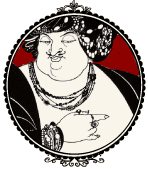

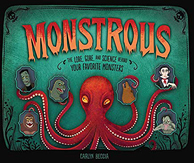
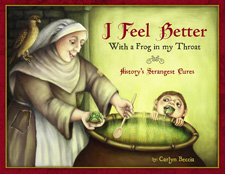
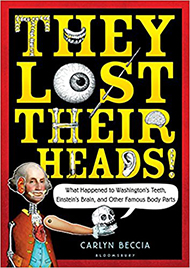


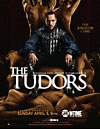

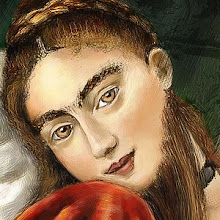

6 comments:
Love these comparisons! (And you're doing a great job of not giving too much away - I'd have a hard time if I tried doing this myself.) I was interested to realize that the most impactful lines from the whole episode were taken from the history books...I wish the writers could craft better dialogue.
I thought this was a great episode, although Henry Cavill (Brandon) needs to stop over-acting. It's okay, though, I'll just put him on mute and gaze at his gorgeous face.
catherine seymour.. first wife of edward seymour had an affair with her father.. as a result.. edward divorced her.. sent to nunnery and their two sons were declared bastards.. as edward sure of the paternity of the kids..
second wife Anne was the bitchy one
Yep. Catherine Filliol (who became Catherine Seymour) had an affair with her father-in-law. Not her father. sheeesh that would be even worse!
Second wife was the rumored bitchy one. But again, you could call her bitchy or strong willed. ha ha Pushy women always got labeled as shrews! Today we might call such a woman determined. :)
Even though they obviously take some liberties with history, it is amazing how much of what we are seeing really is pretty accurate and how the writers incorporate words that were actually said (even though modernized so that we can understand it!)
I was wondering if Lady Elizabeth really was welcomed back to court at this time, I'd always read that she talked to Henry about it but that it didn't actually happen until after her death.
She was back at court for the christmas celebrations. Henry was actually very proud of Elizabeth...she really had a lot of his same talents for language and music.
Post a Comment